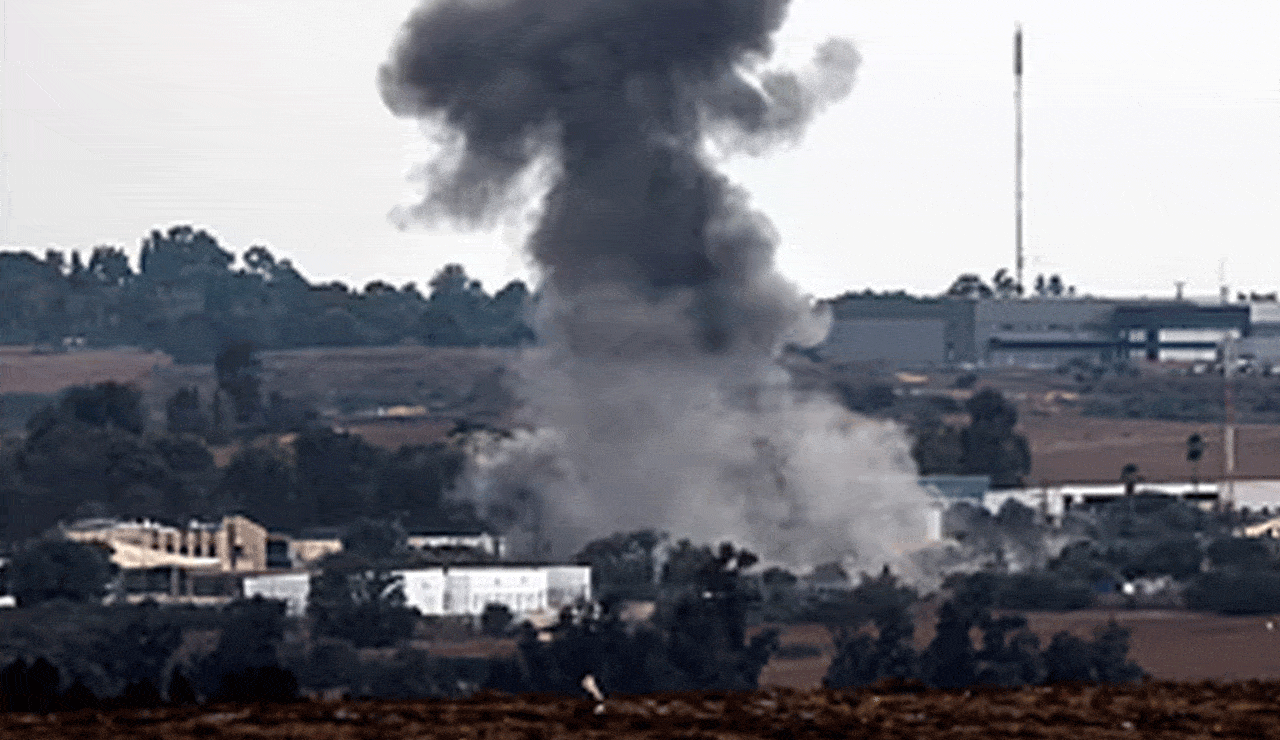Senior Hezbollah Commander Killed in Israeli Drone Strike in Southern Lebanon
A senior military commander of the Lebanese armed group Hezbollah was killed in an Israeli drone strike on Tuesday in the southern Lebanese village of Qa'qaiyat al-Jisr, located in Nabatieh.

Israel: A senior military commander of the Lebanese armed group Hezbollah was killed in an Israeli drone strike on Tuesday in the southern Lebanese village of Qa’qaiyat al-Jisr, located in Nabatieh. The attack, which targeted a civilian vehicle, has sparked controversy over the identity of the deceased and the circumstances surrounding the strike.
Drone Strike Targets Hezbollah Commander in Nabatieh
According to a Lebanese security source, an Israeli drone fired an air-to-ground missile at the vehicle, killing one individual and setting the car ablaze. The body was later identified as Hassan Kamal Halawi, a senior Hezbollah military commander. He was reportedly the chief of Hezbollah’s anti-tank unit in southern Lebanon. Civil defense teams transported his body to a hospital in Nabatieh for identification.
Table of Contents
While initial reports from Lebanon’s Public Health Emergency Operations Centre suggested the deceased was a civilian, Israeli military sources confirmed that Halawi was indeed the target of the strike. The Israeli military claimed that Halawi was responsible for numerous attacks against Israel during the conflict and continued to engage in terrorist activities against Israeli civilians even in recent months.
Israeli Military’s Justification for the Strike
The Israeli military stated that Halawi was involved in orchestrating terror attacks against Israel and had facilitated the movement of Hezbollah operatives and weapons into southern Lebanon. The statement further emphasized that Halawi’s actions had posed a continuous threat to Israel’s security.
Also Read: Thousands of Students in Telangana Forced to Travel Long Distances Due to School Shortages
Ceasefire Agreement and Continued Tensions
Since November 2024, a US- and French-brokered ceasefire agreement has been in place, halting over a year of hostilities between Hezbollah and Israel that were triggered by the war in Gaza. Despite this agreement, Israeli forces have remained at five key positions along the Lebanese border, even after a February 18 deadline for withdrawal. Israeli forces have also continued launching occasional strikes in Lebanon, citing the need to neutralize “threats posed by Hezbollah.”
The situation remains tense, with concerns over the fragile ceasefire and ongoing border disputes between the two parties. The latest strike has further escalated the situation, with Hezbollah vowing to retaliate and regional stability remaining uncertain.
